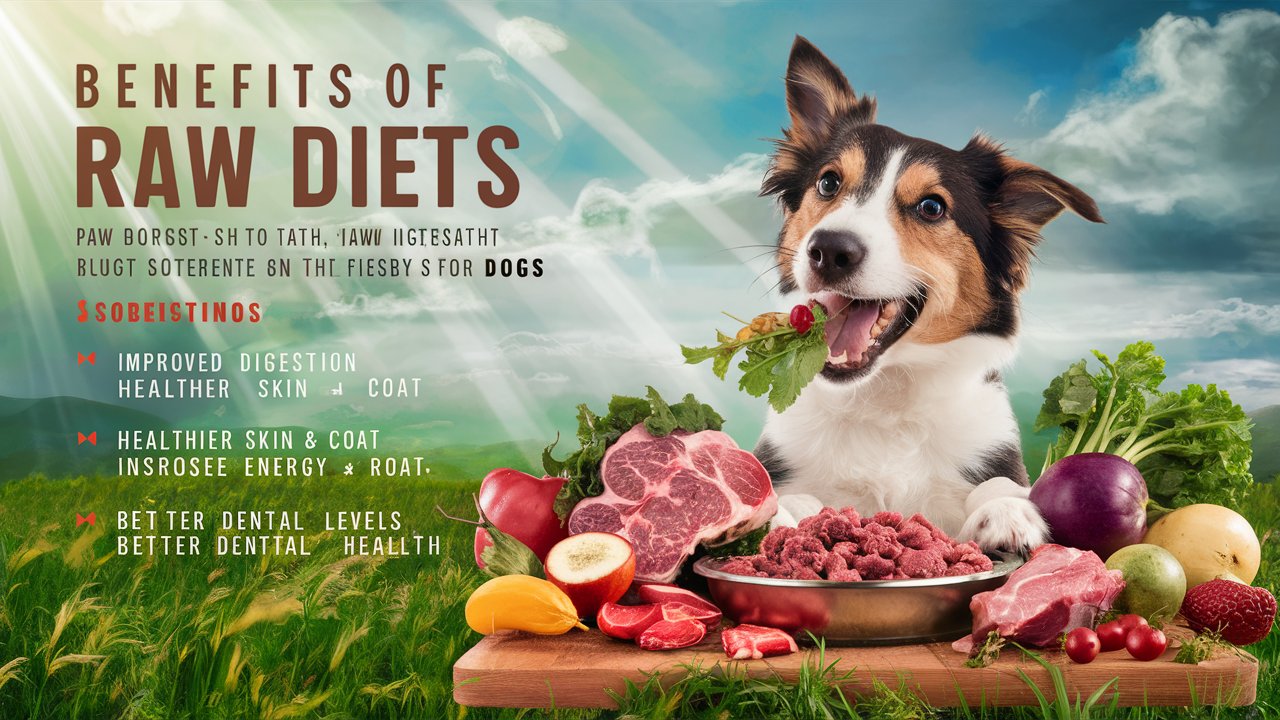In recent years, the trend of feeding raw diets to dogs has gained significant traction among pet owners. But is this dietary choice merely a passing trend or a necessary component of optimal canine nutrition? In this comprehensive guide, we delve deep into the benefits of raw diets for dogs, exploring whether it’s just a fad or a crucial aspect of their overall well-being.
What is a Raw Diet for Dogs?
Before we delve into the benefits, let’s first define what a raw diet for dogs entails. Essentially, a raw diet consists of feeding dogs uncooked meat, bones, fruits, and vegetables. This diet often mimics what a dog’s wild ancestors would have consumed in the wild, focusing on whole, natural foods devoid of additives or processing.
Key Components of a Raw Diet
A raw diet typically includes:
- Raw meat (such as beef, chicken, turkey, or fish)
- Raw bones (to provide essential nutrients and dental benefits)
- Organs (liver, kidney, etc., for added nutritional value)
- Fruits and vegetables (for fiber, vitamins, and minerals)
The Benefits of Raw Diets for Dogs
Improved Digestive Health
One of the primary benefits of feeding dogs a raw diet is the potential for improved digestive health. Raw foods are easier for dogs to digest compared to heavily processed kibble. This can lead to fewer digestive issues such as gas, bloating, and diarrhea, resulting in overall better gastrointestinal function.
Enhanced Dental Health
Raw diets often include raw bones, which can provide significant dental benefits for dogs. Chewing on raw bones helps remove plaque and tartar buildup, resulting in cleaner teeth and healthier gums. Additionally, the chewing action strengthens jaw muscles and promotes overall dental hygiene, reducing the risk of periodontal disease.
Healthier Skin and Coat
Another advantage of raw diets is the potential for healthier skin and coat in dogs. The high-quality proteins found in raw meat promote the growth of strong, shiny fur, while essential fatty acids contribute to skin hydration and overall coat condition. Many dog owners report that their pets’ coats become noticeably softer and shinier after transitioning to a raw diet.
Increased Energy and Vitality
Proponents of raw diets often cite increased energy and vitality as significant benefits for dogs. Because raw foods are rich in natural nutrients and enzymes, they provide a readily available source of energy that can help dogs thrive. Many pet owners report that their dogs have higher energy levels, improved stamina, and a greater zest for life after switching to a raw diet.
Weight Management
Maintaining a healthy weight is crucial for dogs’ overall health and well-being. Raw diets can be beneficial for weight management, as they are typically lower in carbohydrates and fillers compared to commercial kibble. This can help prevent obesity and related health issues, such as diabetes and joint problems, ensuring that dogs maintain a healthy body condition throughout their lives.
Reduced Allergy Symptoms
Food allergies and sensitivities are common among dogs, leading to symptoms such as itching, redness, and ear infections. Raw diets, particularly those free from common allergens such as grains and artificial additives, can help alleviate these symptoms. By eliminating potential triggers and providing a hypoallergenic source of nutrition, raw diets may offer relief for dogs suffering from allergies.
Strengthened Immune System
A well-balanced raw diet can bolster dogs’ immune systems, helping them ward off illness and disease. The vitamins, minerals, and antioxidants found in raw foods support immune function, ensuring that dogs have the necessary defenses to fight off infections and maintain optimal health. A strong immune system is essential for dogs of all ages, from puppies developing their immunity to seniors needing extra support.
Better Nutrient Absorption
Raw diets are rich in bioavailable nutrients, meaning that dogs can more easily absorb and utilize the vitamins and minerals present in their food. This improved nutrient absorption ensures that dogs receive the full spectrum of essential nutrients required for growth, development, and overall health. Additionally, raw diets contain enzymes that aid in digestion, further enhancing nutrient uptake and utilization.
Is a Raw Diet a Trend or a Necessity?
While the popularity of raw diets for dogs may seem like a passing trend, many experts argue that it’s actually a necessary component of optimal canine nutrition. Dogs are carnivores by nature, designed to thrive on a diet rich in animal proteins and fats. Raw diets provide dogs with the natural, species-appropriate nutrition they need to thrive, promoting better health and longevity.
Expert Opinions
Veterinarians and animal nutritionists increasingly recommend raw diets for dogs, citing numerous health benefits and a closer alignment with dogs’ evolutionary diet. While it’s essential to ensure that raw diets are properly balanced and meet dogs’ nutritional needs, many pet owners have witnessed firsthand the transformative effects of feeding their dogs raw.
The Importance of Quality
When considering a raw diet for your dog, it’s crucial to prioritize quality and safety. Choose high-quality, human-grade ingredients, and opt for reputable sources of raw meat, bones, and organs. Additionally, work with a veterinarian or canine nutritionist to formulate a balanced raw diet tailored to your dog’s specific needs, ensuring that they receive all the essential nutrients for optimal health.
Transitioning to a Raw Diet
Transitioning to a raw diet should be done gradually, allowing your dog’s digestive system time to adjust to the new diet. Start by incorporating small amounts of raw food into your dog’s meals, gradually increasing the proportion over time. Monitor your dog’s health and well-being closely during the transition period, adjusting the diet as needed to ensure a smooth and successful transition.
Monitoring Your Dog’s Health
Once your dog is fully transitioned to a raw diet, it’s essential to monitor their health and well-being closely. Look for signs of improved digestion, such as reduced gas and firmer stools, as well as enhancements in coat condition, energy levels, and overall vitality. Regular veterinary check-ups can help ensure that your dog remains healthy and thriving on their raw diet.
Conclusion
In conclusion, the benefits of raw diets for dogs extend far beyond mere trendiness, encompassing improved digestive health, enhanced dental hygiene, healthier skin and coat, increased energy and vitality, weight management, reduced allergy symptoms, strengthened immune systems, and better nutrient absorption. While transitioning to a raw diet requires careful consideration and planning, the potential benefits for dogs’ overall health and well-being make it a compelling choice for many pet owners.





